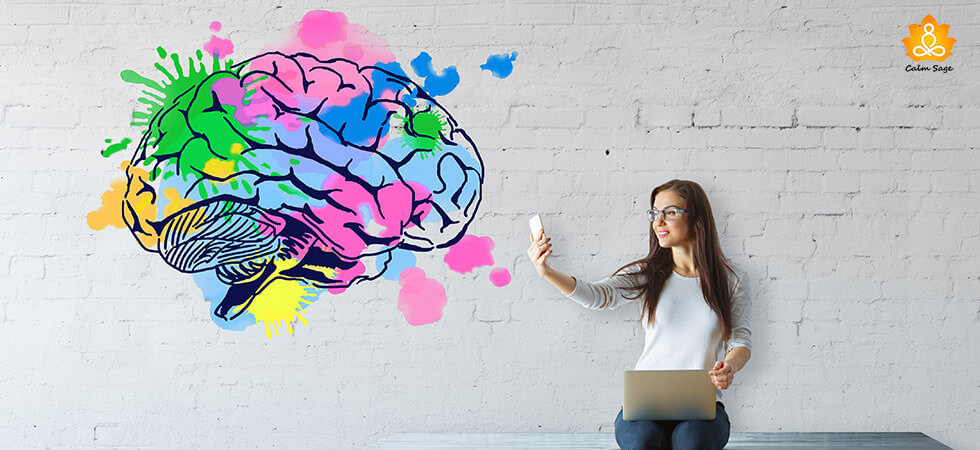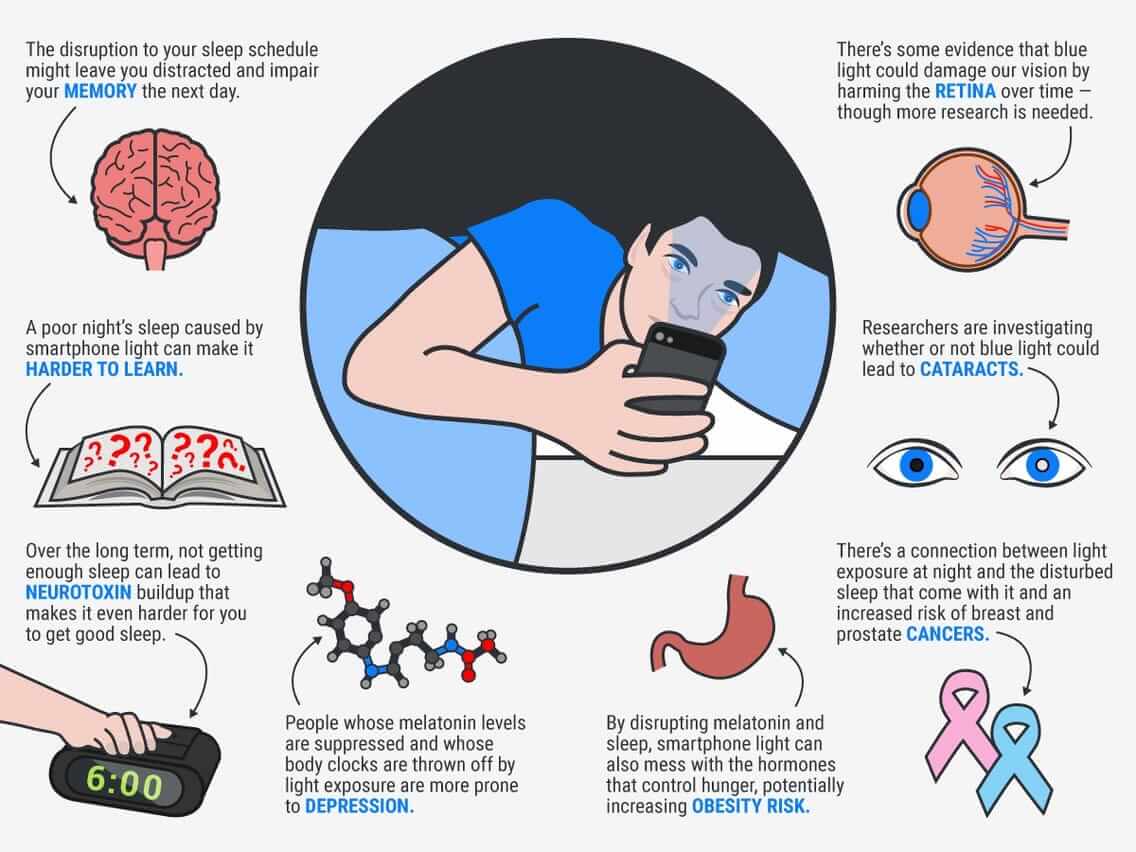The Effects Of Smartphones On The Brain

Ever thought about how much damage your smartphones do to your brain? Ever thought what are the side effects your brain has to bear when you use your smartphone excessively? I asked some of our associated mental health professionals this question! And I was amazed by the reply I received.
First of all, they questioned me, if I was asked to go out a day without a phone, would I be comfortable doing it? And, honestly…my answer was no! And this cross-question by mental health professionals answered most of the queries I had.
From this instance, I learned that if people would ask us to leave our phones for even a short interval, it would be exceedingly difficult for us.
Related Read: Dopamine Fasting: Treat to your brain or maladaptive fad
Let’s take an example, enter any café or restaurant, you would see people clicking and posting a pic of food they have ordered before even tasting or checking the quality properly. Not only this, the outbreak of coronavirus resulted in work from home and this resulted in more screen time (without a doubt).
Smartphones do a lot for our everyday life and hence it is an inextricable part of life. However, the excessive usage of smartphones has various impacts on the brain. This blog covers the impact of smartphones on the brain. So, let’s get started.
Effects of Smartphones on the Brain:

1. Cognitive Ability
Research shows that the use of smartphones has various impacts on the brain and one of the long-term effects is cognitive ability. One of the research shows that the young generation has internet and smartphone addiction which results in an imbalance in brain chemistry.
Some of the researchers also suggest that smartphones impact cognitive capacity. And, when we try to avoid digital devices, cognitive ability also reduces and results in anxiety.
2. Disrupted sleep
If you use a smartphone before bedtime, it might interrupt your sleep no matter if you’re working or scrolling Insta feed for entertainment. This is the only reason why experts ask us to avoid smartphones before 60 minutes of bedtime so that we can have a good and uninterrupted sleep.
The reason is when you use your smartphone; it emits a certain type of light from the phone which messes up our sleeping cycle. It still stays even if you try to turn off the device after using it in the bed. It has also been researched that using a smartphone before sleep reduces the level of melatonin (a hormone that is responsible for sleepiness). It also results in less sleepiness and takes more time to fall asleep.
Now, if I go behind more reasons and the culprit. I think I can blame it on the blue light which is emitted by most smartphones. As per science, our eyes contain a light-sensitive protein that reacts on certain wavelengths.
They also regulate the circadian rhythms of the body. This blue light is responsible for our waking up. And along with this, there is a red light that signals us to wind down. It is kind of a natural cycle. If we interrupt this natural cycle, it results in disrupted sleep.
3. Social-Emotional Skills
When your child uses digital devices for entertainment, it has detrimental effects on their emotional and social wellbeing. In this regard, I asked my colleague a question that states, “When you give the phone to your child to calm or distract them, does it impact on their internal mechanisms of self-regulation?”
Let’s take an example, we all agree with the fact that engaging in human activities that involve interaction is far better than screen time. Usage of smartphones becomes an issue when the digital devices replace interacting activities that help in the development of sensorimotor and visual-motor skills.
4. Mental Laziness
As mentioned above, digital devices result in less interaction which also impacts cognitive skills and social-emotional skills. This impacts mental laziness as well. Instead, reading books and searching for answers to our questions, we simply Google (which is easy but also has some disadvantages).
Instead of planning a whole day, we put reminders on our calendar which is no doubt a good thing. But, it also results in mental laziness.
5. Reduces productivity
As per research by Gloria Mark named “digital distraction expert,” it shows that it usually takes “23 minutes and 15 seconds for resuming focus on a task followed by any form of distraction.” Of course, these numbers are just approximate but we cannot deny the fact that it actually takes time to resume our focus.
Additionally, this is such a huge difference between being truly engaged or focused and looking at your screen. Psychologists refer to this state as a “flow state” which usually gets interrupted by smartphones. Such reduced productivity could lead to various mental health issues like stress, anxiety, and more.
6. Increased smartphone usage leads to short attention spans
One of the biggest disadvantages of using a smartphone is that it restores the average attention span. This is referred to as the “goldfish effect” wherein the internet and smartphone usage is the cause behind the shortening of our attention spans.
Research by the National Centre of Biotechnology shows that “the average attention span dropped from 12 seconds in 200- to 8 seconds in 2013.” The one factor which was blamed during this research was increased internet and smartphone usage. This shows that online advertisement knows that pattern and they are actually successful at grabbing our attention.
With a lot of information available on the internet, we are becoming good at scrutinizing. There were good old days wherein we used to read to gain knowledge. However, nowadays we are just shifting from one web page to another. This directly impacts our attention span.
7. Can Make you Nomophobic
Nomophobia is the term used for describing the fear of being without a phone. Nomophobia includes losing, breaking, forgetting your phone, and outside of mobile phone contact. Nomophobia is a growing concern worldwide wherein people are always connected with their phones.
Without a phone, people experience stress and anxiety in the worst cases they also experience panic attacks or fear. This is a sign of problematic smartphone use that has impacts on mental health and overall wellbeing.
Additionally, this is a fact that smartphones are designed in such a way that makes us addictive. Gaming, social media, and organizing are created with so many psychological tricks that they make us forget to live in real life.
8. Increases Stress
When we use smartphones excessively, they impair our cognitive skills (as mentioned above). Impaired cognitive skills can lead to increased stress, anxiety, and more mental health issues. With the growing technology, we have adapted ourselves in such a way that without smartphones we cannot even walk alone.
This has resulted in less face-to-face interaction and it certainly impacts the brain as well which leads to stress and other mental health issues.
Refer to the below-list for reducing stress from your everyday life:
9. Increased risk of depression
If I talk with the perspective of Nomophobia, Nomophobia can lead to depression and panic attacks. Similarly, when we use smartphones excessively without any face-to-face interaction, it can result in a less interpersonal connection. This also impacts our relationship with friends, family members, partners, and colleagues.
Dr. Kaufer appropriately stated, “Before smartphones, all interactions were face-to-face, and there’s a richness of communication that gets lost when you have a conversation on the phone or through texting.”
Additionally, social media usage can worsen depression due to the effect named “social comparison” Leon Festinger proposed “Social Comparison Theory” wherein he suggested that our happiness is always impacted by the success of others.
On social media, we are directly exposed to people who are successful, have better lifestyles, and are extravagant. This leads to comparison and it affects our everyday life. During that moment, our unconscious mind is unable to understand the distinction and it results in feeling unlucky and unsuccessful.
Related Read: How social media is leading our lives
10. Fake News consumption impacts mental health
“Consumption of fake news” is a virus that cannot be treated until and unless someone communicates with us with more fact-based discourse. With the outbreak of Coronavirus, everyone is talking without any facts and cause. Consumption of such fake news has truly affected our mental health.
Coronavirus brought social distancing and loneliness to the world and fake news related to Coronavirus impacted us more mentally and physically. Therefore, do not trust in any kind of information passed by an unknown. Keep believing in facts and do not let your brain gets impacted by such a nuisance.
If you or your loved one is experiencing something like this related to smartphones or digital devices, then maybe it’s time to visit a certified counselor. Meeting with a counselor can help in reducing the impacts of smartphones on our brain and mental health.
I hope this blog helps you to understand the impacts of smartphones on the brain. Comment down and share your experiences with the excessive use of smartphones with us and let us bring a positive change together. For more such content, follow Calm Sage on all social media platforms.
Thanks for reading!




















